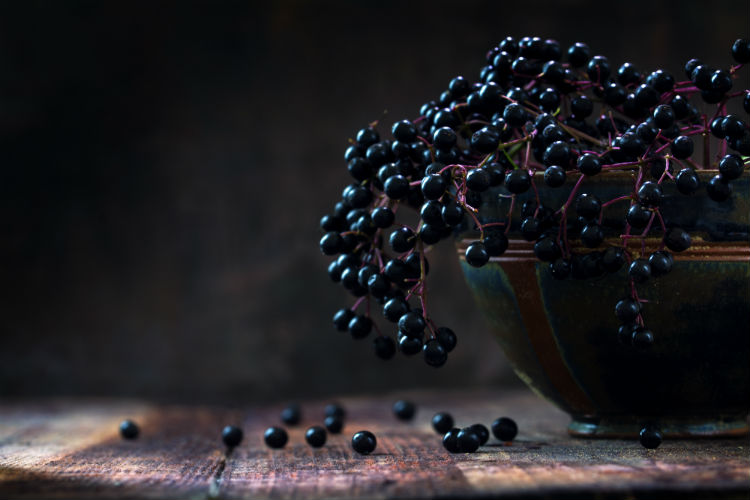A number of studies have focused specifically on children’s elderberry for immune boosting properties to fight off a variety of viral illnesses …
The number of children taking herbal preparations has been on the rise over the past several years as the National Center for Complementary and Integrative Health (NCCIH) found a 4% prevalence of herbal use among children up to age 17.1 Another NCCIH survey showed that nutritional supplements, other than vitamins or minerals, were the most common complementary or alternative health treatment for children, with children’s elderberry as the most popular.2
One of the main reasons elderberry is so popular for children is that their taste buds are more attuned toward sweet than the other taste groups of sour, bitter, or salty.3
During the pandemic, you’ve likely seen even more interest in herbal treatments among the parents of pediatric patients, particularly for boosting the immune system. Given that elderberry is purported to have immune boosting properties, let’s take a closer look at its efficacy for use in pediatric patients.
General immune support benefits of elderberry
The fruits and flowers of the elderberry (Sambucus) plant have been a mainstay of traditional medicine in Europe for hundreds of years, particularly for symptoms of cold and flu, such as cough, sore throat, fever, and excessive mucus. Even today, elderberry is processed into wine and juice.
The Sambucus nigra variety in particular seems to have the highest concentration of anthocyanins, which are polyphenolic compounds that give the berry its deep purple color and also contain powerful antioxidants that fight off viruses.5
A 2019 meta-analysis study pooled results from a number of smaller studies examining the use of elderberry for treating upper respiratory symptoms from viral infections such as the flu or common cold.4 In looking at the pooled results, the researchers concluded that elderberry substantially reduced upper respiratory symptoms from viral infections: “These findings present an alternative to antibiotic misuse.”
Immune benefits of children’s elderberry
A number of studies have focused specifically on children’s elderberry’s immune boosting properties to fight off a variety of viral illnesses. A 2020 article in the journal Nutrients reported on the effects of a combined supplement of elderberry, zinc, Lactobacillus acidophilus, and vitamins D, E, and C on pediatric tonsillitis. The supplement helped reduce both fever symptoms and the recurrence of tonsillitis.6
An earlier article in the Journal of Alternative and Complementary Medicine compared the effects of a supplement including elderberry to a placebo for treating flu symptoms.7 Although this was a general population study, it did include children. There was a significant improvement of symptoms within two days among 93% of study subjects who took the elderberry supplement. In comparison, 92% of placebo subjects showed improvement within six days. Furthermore, 90% of those taking elderberry showed complete recovery within three days, while it took at least six days for 92% of the placebo subjects to fully recover.7
The 2019 meta-analysis mentioned previously used studies that included pediatric patients as young as five.4 Results showed substantially reduced duration of severity and duration of fever and sinus congestion, among other symptoms in these younger patients.
Even without the added immunological stress of the pandemic, children’s immune systems undergo significant changes, which can often leave them vulnerable to viral infections. Fortunately, children’s elderberry supplements are not only effective in boosting their immune systems, but also have a pleasant taste that pediatric patients will find appealing.
References
- Barnes PM, Bloom B, Nahin RL. Complementary and alternative medicine use among adults and children: United States, 2007. National Health Statistics Report. 2008;(12):1-23.
- National Center for Complementary and Integrative Health. Use of natural products by children: What the science says. Posted June 2018. Accessed July 2022.
- Mennella JA, Bobowski NK. The sweetness and bitterness of childhood: Insights from basic research on taste preferences. Physiology & Behavior. 2015;152(Pt B):502-507.
- Hawkins J, Baker C, Cherry L, Dunne E. Black elderberry (Sambucus nigra) supplementation effectively treats upper respiratory symptoms: A meta-analysis of randomized, controlled clinical trials. Complementary Therapies in Medicine. 2019;42:361-365.
- Młynarczyk K, Walkowiak-Tomczak D, Łysiak GP. Bioactive properties of Sambucus nigra L. as a functional ingredient for food and pharmaceutical industry. Journal of Functional Foods. 2018;40:377-390.
- Di Stadio A, Della Volpe A, Korsch FM, et al. Difensil immuno reduces recurrence and severity of tonsillitis in children: A randomized controlled trial. Nutrients. 2020;12(6):1637.
- Zakay-Rones Z, Varsano N, Zlotnik M, et al. Inhibition of several strains of influenza virus in vitro and reduction of symptoms by an elderberry extract (Sambucus nigra L.) during an outbreak of influenza B Panama. Journal of Alternative and Complementary Medicine. 1995;1(4):361-369.






